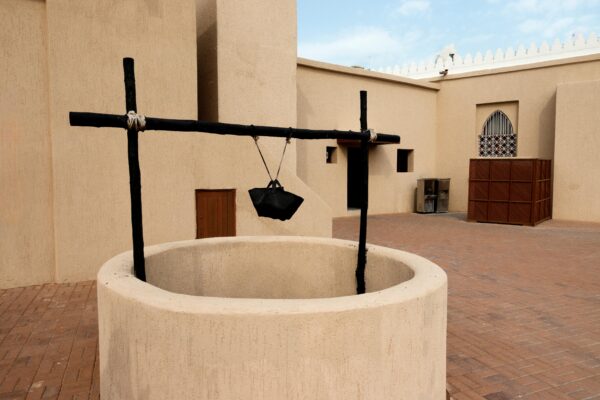
6 Wealth-Building Lessons from Khadijah (RA) Every Muslim Should Know
03 December 2025 8 min read


Sulaiman Moolla
Managing Director and Head of Investments at Cur8 Capital
4 min read
Last updated on:
It was whilst listening to my friend Dr Sohaib Saeed on one of Islamic Finance Guru’s podcasts (watch here: How To Finally Connect With The Quran) that I was reminded of the powerful story of the Thakif and their pivotal role in Islam’s revolutionary stance on economic justice.
Many of us will be familiar with the story of Prophet Muhammad’s (PBUH) visit to Ta’if and their rejection of his message; however, few of us realise the inhabitants of this very town were the Thakif.
The Thakif tribe, were one of the wealthiest and most influential tribes in pre-Islamic Arabia. Ta’if was an economic powerhouse, known for its fertile landbanks, and strategic trade connections – almost like today’s New York or Hong Kong. The tribe’s prosperity, however, was deeply tied to riba.
In pre-Islamic Arabia, riba was common financial practice with loans extended at exorbitant interest rates, trapping borrowers in cycles of debt and exploitation. For the Thakif, riba was not merely a business model but a cornerstone of their economic dominance.
Many of us have grown up hearing narrations of the Prophet Muhammad’s (PBUH) visit to Ta’if—a moment often described as one of the lowest points in his life. After facing intense persecution in Makkah, he traveled to Ta’if seeking refuge and support, inviting the Thakif tribe to Islam.
The response was hostile—they rejected his message, mocked him, and drove him out of the city, pelting him with stones. Despite the profound emotional and physical pain of this experience, the Prophet exemplified remarkable compassion. Instead of cursing, he prayed: “O Allah, guide my people, for they do not know.”
This moment of rejection, though deeply challenging, set the stage for the Thakif’s eventual transformation and their alignment with one of Islam’s core principles of justice.
After the conquest of Makkah in 8 AH (630 CE), the Thakif allied with other tribes against the Muslims in the Battle of Hunayn. Following their defeat, the Thakif retreated to their fortified city of Ta’if. The Muslims laid siege to Ta’if, but the city’s strong defenses and skilled archers made it nearly impenetrable. Recognising the futility of prolonged conflict, the Prophet Muhammad (PBUH) lifted the siege, giving the Thakif time to reflect on their position.
In 9 AH (631 CE), the Thakif sent a delegation to Madinah to negotiate their acceptance of Islam. Whilst they agreed to abandon idol worship, they proposed a compromise regarding riba:
This proposal was firmly rejected by the Prophet Muhammad (PBUH), who upheld Islam’s uncompromising prohibition of riba. The Prophet emphasised that Islam’s principles of justice and fairness could not be selectively applied. The Thakif faced a choice: to fully embrace Islam’s economic reforms or cling to their exploitative practices.
It was in this context that the Qur’anic prohibition of riba was revealed. Surah Al-Baqarah 2:278-279 commands:
“O you who have believed, fear Allah and give up what remains [due to you] of interest, if you should be believers. And if you do not, then be informed of a war [against you] from Allah and His Messenger. But if you repent, you may have your principal – [thus] you do no wrong, nor are you wronged.”
These verses marked a definitive stance against economic exploitation and inequality. It condemned practices that enriched the wealthy at the expense of the vulnerable and replaced them with principles of fairness, shared risk, and mutual benefit.
For the Thakif, this was a defining moment. Their financial dominance had been built on riba, and abandoning it meant relinquishing economic power. Yet, they ultimately accepted Islam fully, abandoning riba and idol worship. This marked their transition from an exploitative economic system to one rooted in justice and solidarity.
The story is one of resistance, reform, and the enduring challenge of aligning wealth with moral and ethical values. The transformation of the Thakif, particularly their eventual abandonment of riba, reflects the broader struggle many societies face when transitioning from exploitative systems to equitable ones.
In the modern era, this challenge remains highly relevant. Wealth continues to accumulate in ways that often exacerbate inequality, prioritise profit over people, and perpetuate cycles of exploitation. However, the solutions made available by Islamic Finance today make the alignment of wealth with shariah principles not only possible but increasingly achievable:
The Thakif’s story demonstrates that change is never easy, but necessary to create a fairer, more equitable society and possible. Today, the tools and frameworks available make it possible for individuals, institutions, and nations to align their financial practices with moral and ethical values. By leveraging these solutions, we can take meaningful steps toward an economic system rooted in justice, equity, and collective prosperity – a vision Islam emphasised over 1,400 years ago.
The Quran is filled with guidance on wealth, business, ethics, and barakah. Yet, how often do we turn to it for financial advice?
If you found this beneficial, don’t keep the khayr to yourself and share this with someone! The Prophet ﷺ said: “Whoever guides someone to goodness will have a reward like one who did it.” (Muslim 1893)
For more financial lessons from the Qur’an, you can download our free ebook containing 30 bitesize lessons on how to manage your money in a way that pleases Allah here.
To learn more about riba and how it compares with trade, check out this article here. If you need help with investing according to Islamic principles, we have designed a free halal investment checklist which you can access here.

03 December 2025 8 min read

13 August 2025 12 min read
Leave a Reply